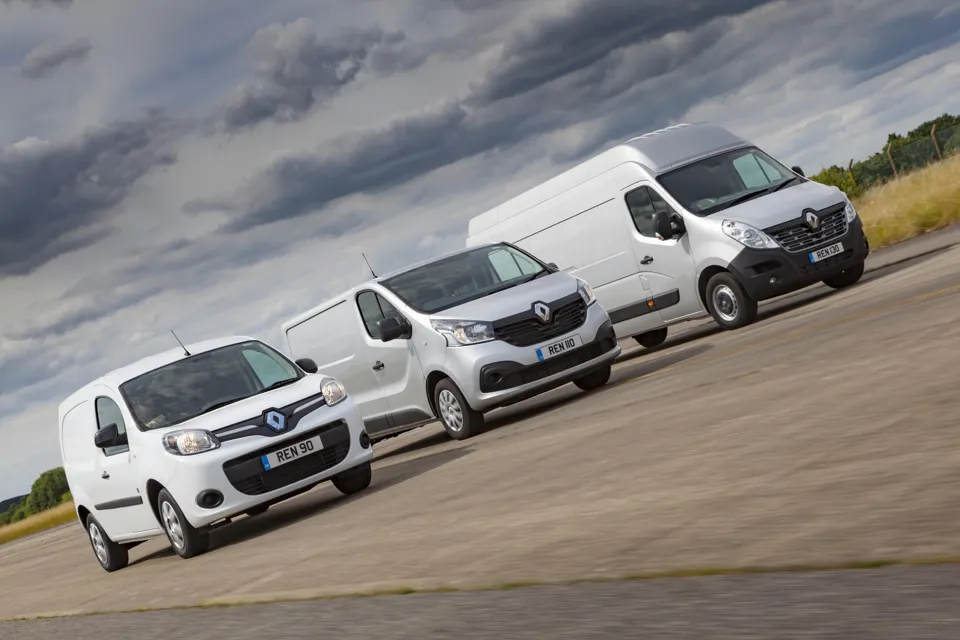More than half (51.9%) of van and truck operators are expecting to increase their fleet size this year but 2017 is likely to be fraught with challenges for many as operating costs rise, congestion increases and air quality measures are put into practice.
There are currently more than four million vans on UK roads and more than 250,000 of these belong to Fleet200 companies.
Van sales reached an all-time high in 2016 and are expected to remain strong this year, although the Society of Motor Manufacturers and Traders (SMMT) believes registrations could fall by 5.3% (from 375,687 units in 2016 to 355,500 units this year).
A quarter (24.7%) of respondents in the Commercial Fleet poll predicted their fleet size will reduce this year with some, especially in London, looking at utilising public transport instead.
Caroline Sandall, deputy chairman of ACFO, said: “Increasing uncertainty over the treatment of diesel in urban areas is likely to impact future strategy and we are already seeing companies choose to ban or severely limit the uptake of diesel vehicles on their fleets.
“Fleets should always be looking at the long-term requirements of their needs, but put them into the context of how the treatment of certain vehicles may change – especially fleets with any scale of activity in city centres.”
Four major cities – Paris, Madrid, Athens and Mexico City – have already announced they plan to ban diesel vehicles completely from the middle of the next decade and Mayor of London Sadiq Khan wants to speed up the introduction of central London’s Ultra-Low Emission Zone (ULEZ), implement a surcharge for the most polluting vehicles entering the city and propose a countrywide diesel scrappage scheme.
Mark Sutcliffe, author of Sewells Research & Insight report Why fleet operators need to start planning for the transition to zero emissions vehicles in 2017, warns: “Fleet managers who buy diesel vans from 2017 onwards, may regret that decision when, come 2021, they are faced with offloading four-year-old vans that are restricted from driving in centre centres and are significantly more expensive to run than their latest electric counterparts.”
Fleets that require conventional powered vehicles will have to contend with the possibility of rising fuel prices. Despite dropping to around £1 per litre in 2016, pump prices are on the way back up.
In his autumn statement the Chancellor promised to freeze fuel duty for the seventh successive year, but crude oil prices have continued to rise against a weaker pound.
“Fuel is a cost area frequently impacted by global economic fluctuations so this is nothing new,” said Sandall. “But as such a major element of fleet costs, this will continue to cause challenges for fleets trying to forecast and control that aspect of their budgets.”
Britain’s exit from the European Union is also likely to cause issues for fleet operators this year with driver numbers a key concern for the Freight Transport Association (FTA), which has been highlighting the need for more HGV drivers since 2014. As many drivers already come from mainland European countries it now fears the shortage could worsen.
James Hookham, deputy chief executive of the FTA, said: “The uncertainty about drivers’ employment rights and status once Britain leaves the EU is a major concern for businesses. We urge the Government to ensure its Brexit negotiations afford special status to logistics and allow for this employment to continue so the industry is not hit by another driver shortage crisis.”
James Stamp, UK head of transport at KPMG, added: “Over the next 12 months we will learn a lot more about what Brexit means in practice. What is certain is that companies will need to start to adapt their business models to preserve their existing business goals. Apart from the issue of market access, the most pressing issues for transport will be across supply chain, procurement, people, and financing.
“Companies that are sub-scale or have been bumping along the floor of their financing facilities may find the return of higher oil prices or interest rates too much to bear. However, one company’s crisis means another’s opportunity: what assets, customers, or operations can be picked up cheaply?
“We expect to see more transactions and opportunities coming from more robust competitors picking the bones of weaker rivals.”

















Login to comment
Comments
No comments have been made yet.